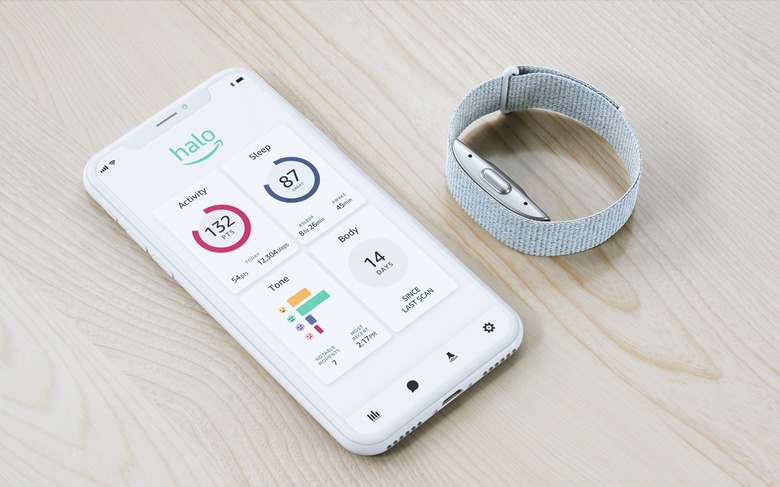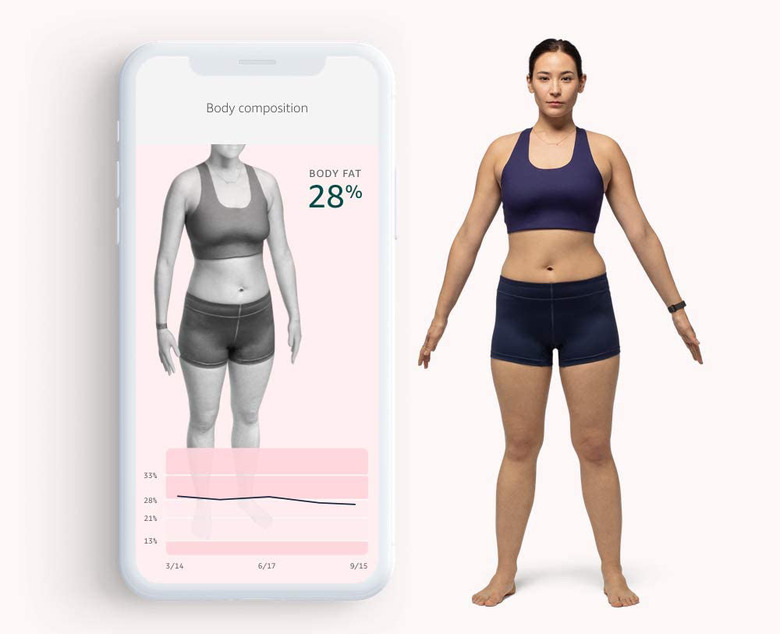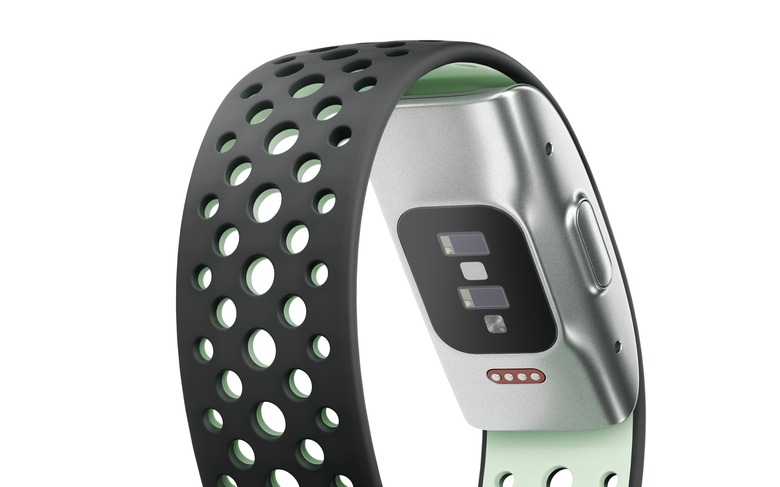Now Anyone In The US Can Buy Amazon's Controversial Halo Fitness Band
We may receive a commission on purchases made from links.
Amazon's controversial Halo fitness wearable is now available for general order, with the health-tracking band emerging from the retailer's Early Access program with its divisive feature-set intact. Announced earlier in the year, Amazon Halo does what you'd expect from a fitness tracker, but also adds microphones so that it can judge the wearer's tone, and a body-fat analysis system which requires uploading scantily-clad photos of yourself to the company's servers.
At a time when Alexa's many microphones in the home were increasingly being questioned, and Amazon's scale in general has become a keenly-discussed topic, Halo's demands beyond just a spot on your wrist prompted instant skepticism. The company launched it as an invitation-only product, inviting the curious to pre-register and then rolling the wearable out over time.

Now, though, it's graduating to Amazon's regular (virtual) shelves. Priced at $99.99, and also available through Best Buy, Halo lacks a display like a smartwatch or the latest fitness trackers from Fitbit and others. Instead, the fabric-wrapped dongle focuses on movement and sound.
There's step counting, activity intensity and duration measurement, and logging of sedentary time. That's compared against recommendations from the American Heart Association for weekly goals, with Halo Band wearers scored out of 150 points. It can also measure quality and quantity of sleep – including time in different phases, and skin temperature – while the Halo app offers optional workouts, meditations, and challenges around fitness and wellbeing.

What's more controversial are the Halo Body and Halo Tone features. The former promises to calculate body fat percentage more accurately than BMI measurements or body-fat scales would, and requires uploading images of yourself wearing tight-fitting underwear to be processed by Amazon's algorithm.
In a Halo privacy paper, the company says that there's encryption for data transfer and storage, no sale of customer health data, restricted access within the company, and no use made of it for marketing, product recommendations, or advertising. It also allows easy deletion of those images and other health data.

Nonetheless, the feature prompted skepticism. That's much the same as Halo Tone, which uses microphones on the Halo Band to apply machine learning to your voice, analyzing how positive you are and how much energy there is. Daily summaries then promise to condense that information into something usable, like whether you're speaking in a stressed way to others. Halo will do that automatically, or you can manually trigger through the Halo Band to analyze a meeting or call.
Again, there are plenty of privacy protections that Amazon spells out in its white paper. All the same, the idea of walking around with a wearable listening out for your daily interactions unsurprisingly left some perturbed. Amazon, meanwhile, says that those who have tried Halo through the Early Access program "have loved getting a more comprehensive view of their health."

Their feedback has helped shape two new additions to Halo's abilities. Insights promise to connect different elements of the tracked measurements, such as highlighting when you sound most engaged and energetic based on workout times. On-demand workouts, meanwhile, now offer ad-hoc guided workouts from Orangetheory Fitness, Openfit, Aaptiv, Exhale, P.volve, and Street Parking, with filters for duration, type, and difficulty level.
If you're swayed, Amazon Halo is available to order now. The $99.99 Halo Band comes with six months of Halo membership; after that, it's priced at $3.99 (plus tax) per month.
[Update: An Amazon spokesperson points out that the Early Access launch for Halo wasn't a beta, but "invite-only to allow us to learn from customers and continue to improve the service."]
